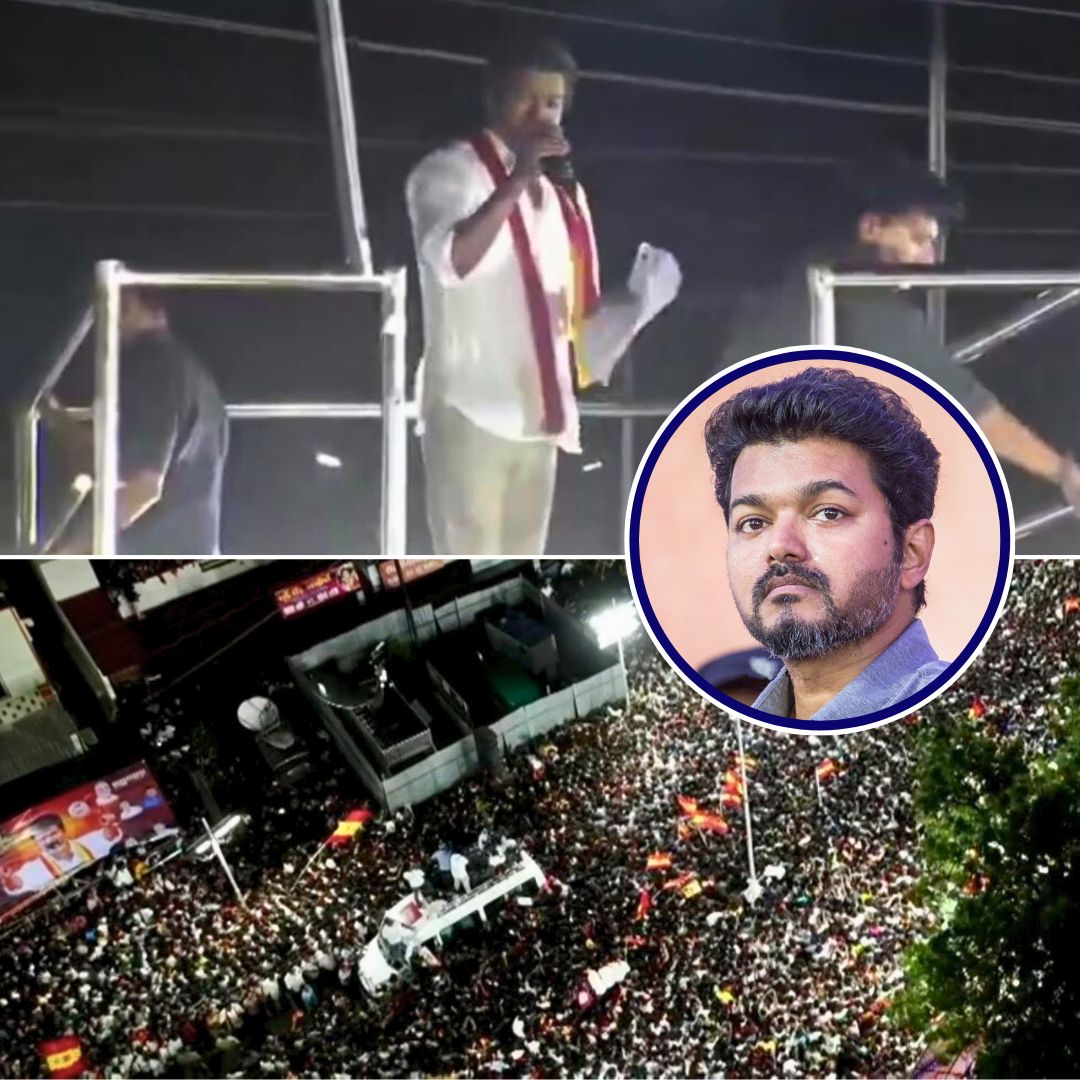Actor and Tamilaga Vettri Kazhagam (TVK) Chief Vijay met with families of the victims of the Karur stampede at a private resort in Mamallapuram near Chennai, about a month after the tragic incident at his political rally claimed 41 lives and injured over 60 people.
The closed-door meeting included around 37 victim families, as well as some injured survivors. Compensations had already been announced, and the meeting aimed to provide personal condolences and support amid ongoing investigations and public scrutiny.
The event, though marked by sympathy, drew some criticism over logistical arrangements and Vijay’s absence from Karur itself.
Background of the Karur Stampede
On September 27, 2025, a crowd crush occurred at a political rally held by Vijay’s party, TVK, in Velusamypuram on the Karur–Erode highway.
Due to poor crowd management, delayed arrival, and administrative lapses, tens of thousands surged forward, leading to tragedy where 41 people, including women and children, lost their lives and more than 60 were injured.
The youngest victim was a two-year-old child. The tragedy led to widespread outrage, investigations by Tamil Nadu police and the CBI, and political tensions in the state ahead of forthcoming elections.
Vijay’s Meeting: Compassion Amid Controversy
On October 27, about 37 families of victims and some injured traveled to Mamallapuram, facilitated by TVK which booked 50 rooms in a coastal resort to accommodate them. Vijay personally met and consoled each family, expressing deep sympathies and reiterating support.
Critics on social media and some families questioned the choice of venue, insisting that Vijay should have visited Karur itself. Party officials explained logistical hurdles and security concerns prevented direct visits to Karur. Those who could not attend cited health issues or ongoing rituals. The meeting was closed to media and outside observers to maintain privacy and solemnity.
The Logical Indian’s Perspective
The Karur stampede tragedy is a heartrending reminder of the indispensable need for rigorous safety protocols at large public gatherings and sincere accountability from organisers and officials.
Vijay’s encounter with victims’ families, though meaningful, cannot substitute systemic reform, transparent investigations, and preventive measures to avoid such disasters in the future. True healing comes from empathy, justice, and structural change.
News in Q&A
1. What exactly happened during the Karur stampede, and when and where did it take place?
The stampede occurred on September 27, 2025, at a TVK political rally in Velusamypuram, Karur–Erode highway, Tamil Nadu. Thousands gathered, allowed beyond official capacity, resulting in a deadly crush when Vijay arrived nearly six hours late, triggering panic and fatalities.
2. Who were the victims, and what was the scale of the tragedy?
A total of 41 people died, comprising 18 women, 13 men, 5 girls, and 5 boys including a two-year-old child. Over 60 others were injured, many severely. Most victims were ordinary citizens, supporters and curious onlookers rather than party workers.
3. What were the main causes and what criticisms have emerged?
The tragedy is linked to poor crowd control, administrative negligence, lack of proper safety protocols, and an ill-suited venue on a narrow road. Power outages further aggravated panic. Critics cite failure to respect safety warnings and inadequate emergency preparations as key factors.
4. What official responses and investigations are underway?
Tamil Nadu police and the CBI are investigating. The Supreme Court ordered a CBI probe with a three-member supervisory committee headed by a former Supreme Court judge. Compensation has been given by the government and TVK, and legal proceedings including culpable homicide cases against TVK leaders are ongoing.
5. How has political and public reaction shaped following the event?
The stampede intensified political rivalry, with the ruling DMK criticizing TVK for poor management and delaying visits. TVK’s leader Vijay met victims’ families amid criticism. Public protests, demands for reform in public safety at rallies, and media scrutiny continue as authorities sought systemic changes.













